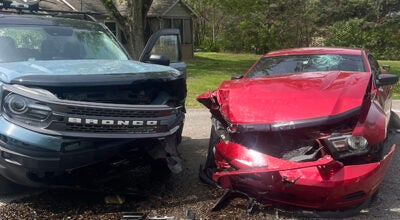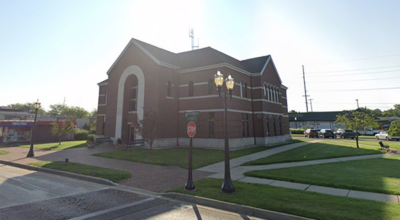Miller discusses recent House roads legislation
Published 9:27 am Thursday, October 29, 2015
After several months of stalling and stuttering, legislation to provide funding for state roads appears to be back on course.
State Rep. Aaron Miller stopped by the last meeting of the Dowagiac City Council Monday night, where he discussed the state House of Representatives latest proposed solution to fixing Michigan’s battered roadways with local leadership. The Sturgis Republican, whose legislative district includes the City of Dowagiac and several surrounding townships, talked about the hits and misses of the recently passed $1.2 billion legislative package meant to provide funding for the state transportation system.
Passed last week in the state House, the set of bills will generate dollars for road and other transportation repairs through several initiatives, including:
• Devoting $600 million from the general fund to road repairs, beginning in 2019.
• Raising the gasoline tax by 3 cents starting in 2018, making it tied to inflation starting in 2022.
• Increasing diesel taxes to bring the rate equal to gas taxes.
• Raising vehicle registration costs by 40 percent across the board, beginning Oct. 1, 2016.
“This set of bills has something that everybody really wants,” Miller said. “The governor wants all new taxes, the Senate wants all new taxes — this contains a lot of what they want.”
Despite voting in favor of the plan, the lawmaker expressed some reservations with some of the provisions, including the registration cost hike, he said. With the average cost of passenger vehicle registration around $100, many residents can expect to pay an extra $40 or more should the bills be enacted.
“It does not seem fair in my opinion,” Miller said. “I drive 35,000 miles plus per year…why should I get to pay the same increase that a senior citizen pays if they drive 500 miles. It doesn’t seem to me to be as much as a user fee as something like the gas tax.”
The representative also wasn’t completely sold on two other provisions of the legislation, the extension of the Homestead property tax credit for lower-income households and a roll back of the state income tax, beginning in 2022.
In spite of these concerns, Miller decided to throw his support behind the proposed solution, especially in light of the failure of Proposal 1 in the spring and of other road bills over the past year.
“I will agree it’s not a perfect solution, but I think at this point, from what I’ve heard from most people across the district and across the state, is that they want this to get done,” Miller said.
The package now moves forward into the Senate for consideration.
While there’s no telling if the house’s latest plan will make it to Gov. Rick Snyder’s desk for passage, or at least in it’s present form, Miller said that it is no longer an unrealistic goal for Lansing to finally hammer out a solution to this longstanding issue by year’s end.
“If the funding stream starts next year, we’re definitely going to see more orange barrels for construction,” Miller said.






